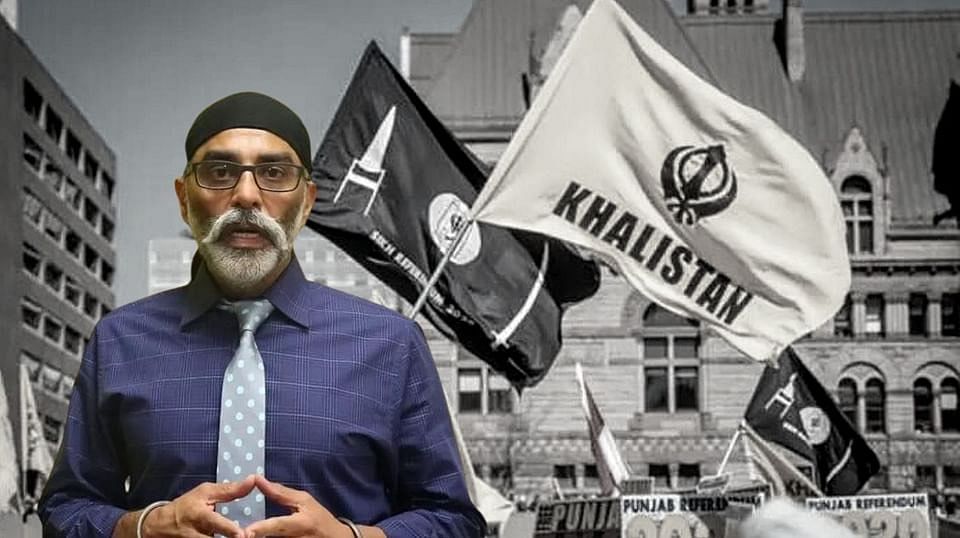
by Dr. Samit Gupta 9 December 2023
The recent revelation of a foiled assassination plot against Gurpatwant Singh Pannun, a prominent advocate for Khalistan, has thrown India into a complex diplomatic web. As the leader of Sikhs for Justice, an organization pushing for an independent Sikh state, Pannun’s alleged targeting on American soil has not only triggered a response from the United States but has also raised questions about India’s international standing.
The context surrounding these events is crucial, particularly in the wake of Canadian Prime Minister Justin Trudeau’s assertion of “credible allegations” linking Indian government agents to the killing of Hardeep Singh Nijjar, another Khalistan supporter. India promptly dismissed Trudeau’s claims, but the subsequent US intervention in the alleged plot against Pannun adds a new layer of complexity to India’s diplomatic landscape.
What distinguishes this situation is the response from the United States, traditionally a strategic partner for India. The decision to thwart potential moves by Indian operatives on US soil and the issuance of a warning to New Delhi underscores a growing divergence in interests or perceptions between the two nations. This divergence has the potential to impact broader diplomatic engagements and collaborations, revealing a shift in how India’s actions are perceived internationally.
The lack of unequivocal support from Western countries, both in the aftermath of Nijjar’s killing and now with the US taking a strong stance, reflects a change in how India is viewed on the global stage. If the alleged assassination plot against Pannun is proven true, it further contributes to mounting skepticism about India’s handling of dissenting voices, particularly those advocating for Khalistan. Beyond the immediate diplomatic fallout, Pannun’s call for a global blockade against Air India introduces a new dimension to the controversy. Urging Sikhs not to travel on the airline due to potential threats to their lives amplifies the international activism surrounding the Khalistan cause. Legal actions and targeted campaigns in foreign jurisdictions put India on the defensive and complicate its diplomatic maneuvering.
These challenges come at a critical time for India, as it grapples with accusations of human rights abuses in various contexts, from farmers’ protests to dissent in regions like Kashmir. The Khalistan controversy adds another layer to the international scrutiny of India’s commitment to democratic values and the protection of minority rights. As the US shares details of the alleged plot with a broader group of allies, it becomes evident that India is not only facing challenges from individual nations but also from collaborative intelligence-sharing platforms like the Five Eyes alliance. This alliance, comprising the US, the United Kingdom, Australia, New Zealand, and Canada, has become a forum for discussing potential Indian involvement in incidents like Nijjar’s killing and the alleged plot against Pannun.
In conclusion, the Khalistan controversy serves as a wake-up call for India to reassess its diplomatic approach and prioritize transparent engagement on issues that attract international attention. The reluctance of key partners to offer unequivocal support raises concerns about India’s global image and its ability to navigate complex diplomatic challenges. As India faces the fallout from the Khalistan controversy, it must acknowledge that the world is watching, and its actions are under intense scrutiny. This isn’t just about managing the aftermath of one incident; it’s about laying the groundwork for a more resilient and adaptable diplomatic strategy in the face of future challenges.
The response from the United States, as articulated by Secretary of State Anthony Blinken and White House spokesperson John Kirby, emphasizes the seriousness with which the US views the situation. The US government awaits the results of the Indian inquiry committee, showing a commitment to due process and accountability. The apparent “business-as-usual” attitude of the Joe Biden administration in its bilateral engagements with India, despite being aware of the alleged plot, suggests a cautious approach rather than an outright confrontation. Analysts argue that the strong foundation of trust and goodwill in the US-India relationship, coupled with convergent interests, prevents a deep crisis despite serious allegations.
However, some caution that the planned assassination attempt may trouble US officials, reinforcing doubts about the supposed shared values between the US and India. While the bilateral relationship may survive the controversy, it underscores the need for both nations to address concerns transparently and uphold democratic values. As India assesses the damage caused by the Khalistan controversy, it must use this as an opportunity for introspection and course correction. The days of traditional diplomacy, characterized by closed-door discussions and limited public engagement, are evolving. Social media and instant information dissemination have ensured that public opinion is a potent force in shaping international narratives.
In this context, India’s ability to communicate its stance, address concerns transparently, and showcase a commitment to democratic values will be pivotal. The Khalistan controversy, while posing immediate diplomatic challenges, also provides an opportunity for India to recalibrate its international engagement strategy in line with contemporary expectations. The world is watching, and India’s response to this challenge will undoubtedly shape perceptions for years to come. The lessons learned from the Khalistan controversy should become the foundation for a more proactive, transparent, and inclusive approach on the global stage. It’s an opportunity for India to showcase the strength of its democratic institutions, commitment to human rights, and an unwavering dedication to dialogue and diplomacy.
